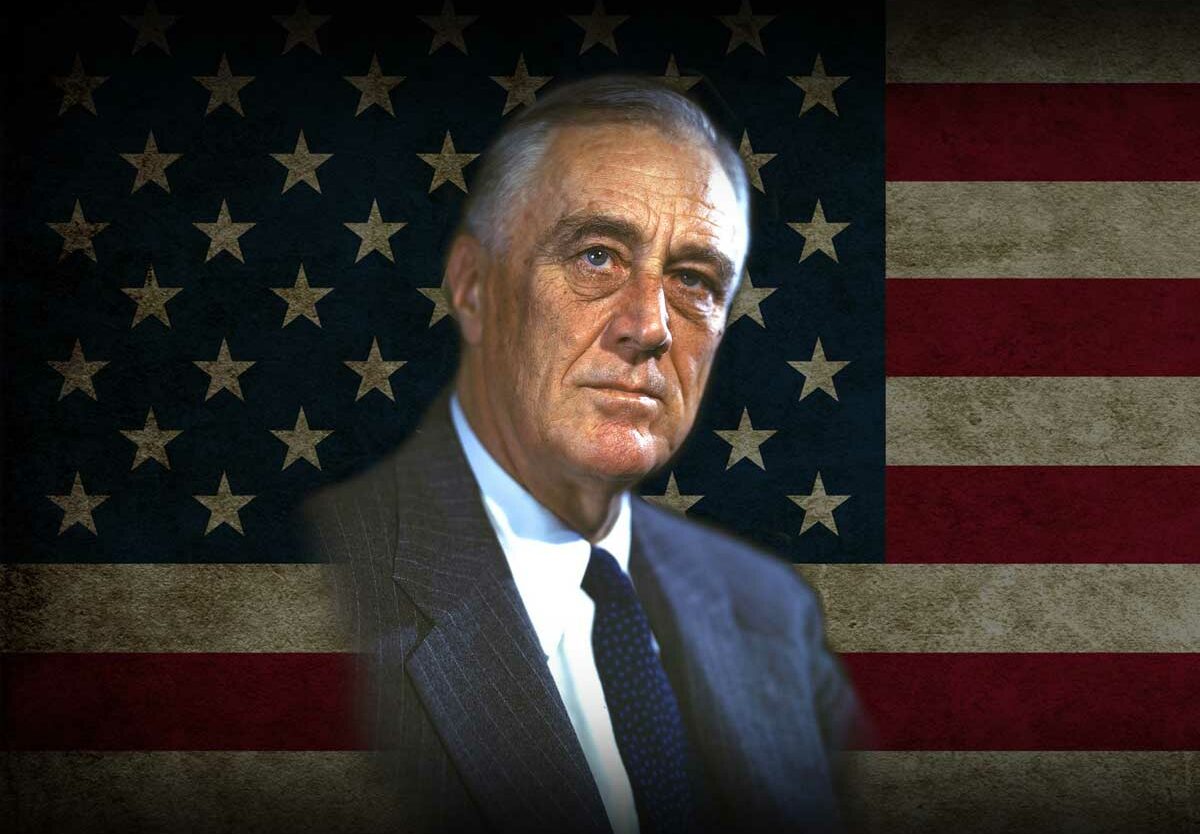BIOGRAPHY:
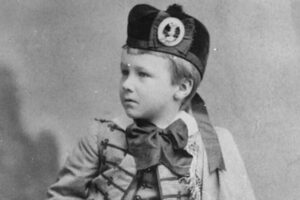
Franklin Delano Roosevelt went down in history as the 32nd President of the United States, elected for 4 consecutive terms. The politician led the country out of the Great Depression, participated in the creation of the Anti-Hitler Coalition, and contributed to the birth of the UN.
The future politician was born on January 30, 1882 in the Hyde Park estate in New York. The family belonged to respectable circles in the capital. Father James Roosevelt, a descendant of the Dutch Rosenfeld family, who moved to the New World at the end of the 17th century, was engaged in commerce, farming, and owned several transport and coal mining companies. Mother, nee Sarah Delano, also belonged to an old European family of French Huguenots, settlers of de la Nua. The difference between the spouses was 26 years. This was James’s second marriage after being widowed. From his first wife, Roosevelt Sr. had a son, the same age as his second wife. Little Franklin was born when his father was 54 years old. The parents tried to give the child the best. In addition to visiting the opera and ballet theaters, the Roosevelts and their son often traveled to Europe, to the sea coast of Maine, where they were engaged in shipping on their own yachts. Having received an excellent education at home, at the age of 14 Franklin entered the Groton School in Massachusetts, where he studied for 3 years. The young man received his higher education and bachelor’s degree at Harvard, after which he became a student at Columbia University Law School. After completing his studies, Roosevelt began practicing law in a law office in Manhattan.
Policy:

Being a relative of the 26th US President Theodore Roosevelt, Franklin himself aspired to politics. And such an opportunity presented itself in 1910, when the young lawyer was offered a position as a senator in the New York State Legislature. Roosevelt won the local elections and became the representative of the Democratic Party in the local government legislature. A year after taking office, Franklin accepted an invitation from the Holland Masonic Lodge and became a member of the organization. Roosevelt would subsequently reach the 32nd Degree of the Scottish Rite and enter the Grand Lodge of Georgia.
In 1912, Roosevelt distinguished himself in the US presidential elections and, after the victory of the Democratic candidate Thomas Woodrow Wilson, received the position of Deputy Secretary of the Navy. The politician worked in this post until 1921. He dealt with issues of strengthening the US Air Force flotilla, improving the combat capability of warships, and also supported the political line of the president.
Continuing to work in the government apparatus, Roosevelt ran for the Senate in 1914, but did not pass the vote. In 1920, Franklin suffered another setback. This time in the presidential election, in which he participated as a vice-presidential candidate for the Democratic team led by James Cox. The political situation did not favor the democratic bloc, and the conservatives won. For 8 years, Roosevelt went into the shadows. This was also facilitated by the onset of disability, which occurred after suffering from polio in 1921.
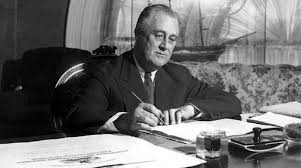
The illness did not break Franklin, and already in 1928 the politician won the election for governor from the state of New York, where he managed to hold out for two terms. Roosevelt used the acquired leadership experience in his further presidential work.
Before the presidential election in 1932, the governor of New York creates a government agency that provides temporary emergency assistance to those affected by unemployment during the years of economic crisis, thereby earning the sympathy of future voters. In addition, a well-conducted PR campaign, which consisted of daily “Fireside Chats” radio broadcasts with the participation of candidate Franklin Roosevelt, made his personality popular among the entire US population. Later all the recordings were published in the form of small books.
President of the U.S.A:

The main elections in Roosevelt’s biography – the US presidential elections – took place in 1933. They were preceded by an election campaign, as a result of which Roosevelt developed and presented the theses of the New Deal. The reform program was aimed at eradicating the shortcomings of the US economy that had developed at the beginning of the 30s and entailed a global commodity and monetary crisis.
Voters believed the politician and were not mistaken in their choice. In the first three months of his administration, Roosevelt put the banking system in order. One of the president’s first laws was a decree on refinancing farm debts. Franklin took state control of the agricultural complex, additionally passing the Agricultural Recovery Act.
Participation in reforming the country’s industrial complex played a major role in the president’s domestic policy. Necessary laws to improve the investment climate in the country were also adopted in the first days of the presidency. The new representative of the White House will stabilize the situation in the country, reduce unemployment, and tame the dissatisfied masses of farmers, workers and bank clerks.
Roosevelt began to introduce programs that were designed to improve the condition of socially vulnerable children and the elderly. Trade unions are being created, mechanisms for stabilizing wages are being developed, and the tax system is being brought into a reasonable framework. Within six months, Roosevelt restored diplomatic relations with the Soviet Union.
Personal life:
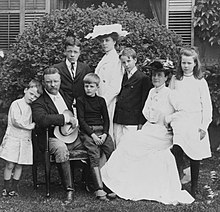
While studying in his last year at Harvard University, Franklin married his distant relative Anna Eleanor Roosevelt, who was two years younger than the young man. Over the course of 10 years, the Roosevelt family had 6 children, one of whom died in infancy. In 1906, daughter Anna appeared, followed by sons James, Elliot, Franklin Delano and John Aspinwall. The wife gradually turned from a housewife and caring mother into Franklin’s personal assistant, and then, due to her husband’s illness, Eleanor had to take on a lot of her husband’s political and social responsibilities.
Eleanor Roosevelt participated in the propaganda of her husband’s first presidential election campaign, defending and explaining the reform course. The president’s wife dealt with issues of employment and social protection of women, becoming a prominent representative of the first wave of feminists. Madame Roosevelt came under the care of vulnerable layers of citizens: the unemployed, teachers, journalists. At the end of the 30s, the popularity ratings of the president’s wife were an order of magnitude higher than those of the head of state.
During the tense confrontation with fascism, Eleanor took the post of Assistant Secretary of Defense of the United States. Roosevelt contributed to the creation of the UN, and the first lady made a great contribution to the development of the organization’s provisions for the protection of human rights, including those of US citizens of color. After the death of her husband, Eleanor continued her political career in the administrations of subsequent presidents. The experience and analytical skills of Roosevelt’s wife were valued by the government apparatus of Truman and Kennedy.
The Second World War:

With the states of Europe and Latin America, Roosevelt chose a neutral line of foreign policy. This position was dictated by the US President’s reluctance to intervene in global interstate conflicts, but ultimately led to a decrease in arms exports, which had a negative impact on the barely strengthened US economy. Therefore, with the emergence of Adolf Hitler’s blitzkrieg in Germany, Roosevelt creates a military alliance with Great Britain and begins to supply weapons to the European partner.
With the outbreak of World War II, the Americans delayed open conflict with Japan, but after the December 7, 1941 attack by Japanese military aircraft on a US Pacific Air Force base, Franklin Roosevelt, together with Churchill, declared war on the land of the rising sun. Three days later, Germany and fascist Italy declared war on the North Atlantic coalition. For three years, Roosevelt did not dare to take military action on the European continent, and only after the obvious victories of the USSR, which turned the tide of hostilities, did the American president and his allies open the Western Front.
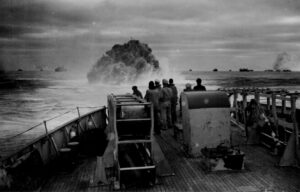
One of the responses to the aggression of fascism was the idea of creating an organization consisting of representatives of four police states who would guard peace throughout the world. Roosevelt nurtured the idea of uniting Great Britain, the USA, the USSR and China from the first days of the war, and in January 1942 Franklin managed to create the UN by signing a declaration of alliance.
Roosevelt repeatedly participated in joint meetings with Stalin and Churchill, which took place in Tehran, Quebec, Moscow and Washington. At the 1945 conference of three world leaders in Yalta, Roosevelt managed to gain the support of the Soviet leader for joint operations against Japan, as well as advance the Soviet-American friendship. The famous photos of Roosevelt, Churchill and Stalin at their dacha in Crimea spread around the world and became harbingers of a warming in relations between countries.
Death:

After returning from the Yalta Conference to Washington, Roosevelt continued to work on preparing the opening of the UN Assembly, as well as the conference in Potsdam.On April 12, 1945, Roosevelt died suddenly at his estate in Warm Springs (Georgia). According to the official version, the cause of death was cerebral hemorrhage. But no autopsy was performed on the body, and the president was buried in a closed coffin, which gave rise to doubts about his natural death. According to his will, he was buried in the family estate of Hyde Park. In accordance with his will, only three words “Franklin Delano Roosevelt” are carved on the monument.
FDR is one of the few politicians about whom negative judgments are only rarely expressed. The vast majority of Americans see him as one of the outstanding representatives of their nation and ranks his name with George Washington, Thomas Jefferson and Abraham Lincoln.
Interesting Facts:

Franklin Roosevelt made a significant contribution to the creation and strengthening of the anti-Hitler coalition and attached great importance to the development of international cooperation in the post-war period. He was one of the initiators of the adoption of the Declaration of the United Nations (signed on January 1, 1942 in Washington), which served as the basis for the future United Nations (the name “United Nations” for the coalition allies was proposed by Roosevelt back in December 1941). In 1943, he participated in several important international conferences: Quebec, Cairo and Tehran. At all three meetings, issues of opening a second front in Europe, the war with Japan and the post-war system were discussed. At the Quebec Conference, he proposed the concept of the “four policemen” – the responsibility of the USA, USSR, Great Britain and China for maintaining peace. In 1945 he took part in the Yalta Conference.
Not many people know that Roosevelt also tried his hand at writing. At the beginning of 1945, the US President completed the literary work “The Baker Street Folio: Five Notes on Sherlock Holmes from Franklin Delano Roosevelt,” which was based on the stories of Arthur Conan Doyle.
From the age of 8, Franklin Roosevelt was interested in collecting postage stamps. The future politician was instilled with a love of philately by his parents, who traveled all over the world. Every day before going to bed, Roosevelt looked at the collection of memorabilia collected over several decades.

After death, an autopsy of Franklin Roosevelt’s body, contrary to the laws, was not performed, and the burial itself was carried out in a closed coffin. The grave of the 32nd US president was guarded by an armed escort for many months after the funeral.
The Virgin Islands annually celebrates Franklin Roosevelt’s birthday; this holiday has been an official holiday for more than half a century.
Franklin Roosevelt more than once became the hero of Soviet films about the war. 6 films were shot, among which the most famous are “The Battle of Stalingrad”, “The Fall of Berlin”, “Liberation”, “Selecting a Target”. The American president was played by Nikolai Cherkasov, Oleg Frelikh, Stanislav Yaskevich, Innokenty Smoktunovsky.
Quotes:
- Having a little inflation is like being a little pregnant. Kindness has never taken away the strength and strength of free people.
- To be strong, a nation does not have to become cruel.The only obstacle to the implementation of our plans for tomorrow can be our doubts today.
- Give me $10 million and I will defeat any constitutional amendment.War is a crude, inhuman and completely impractical method of clarifying relations between governments.
- We have always known that reckless selfishness is a sign of bad character; and now we realized that this is also a sign of a bad economy.
